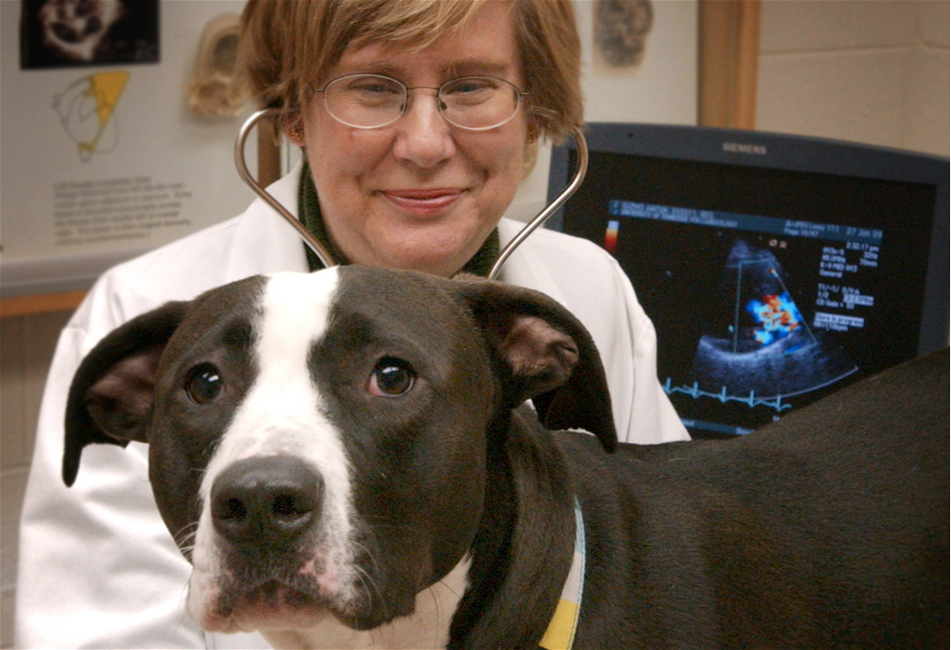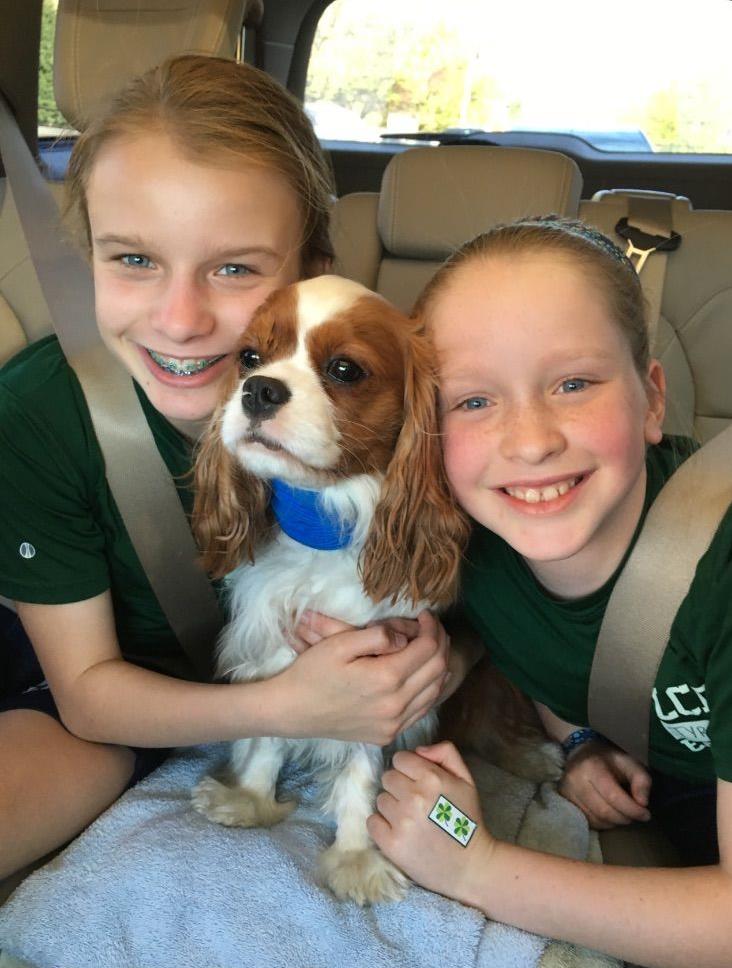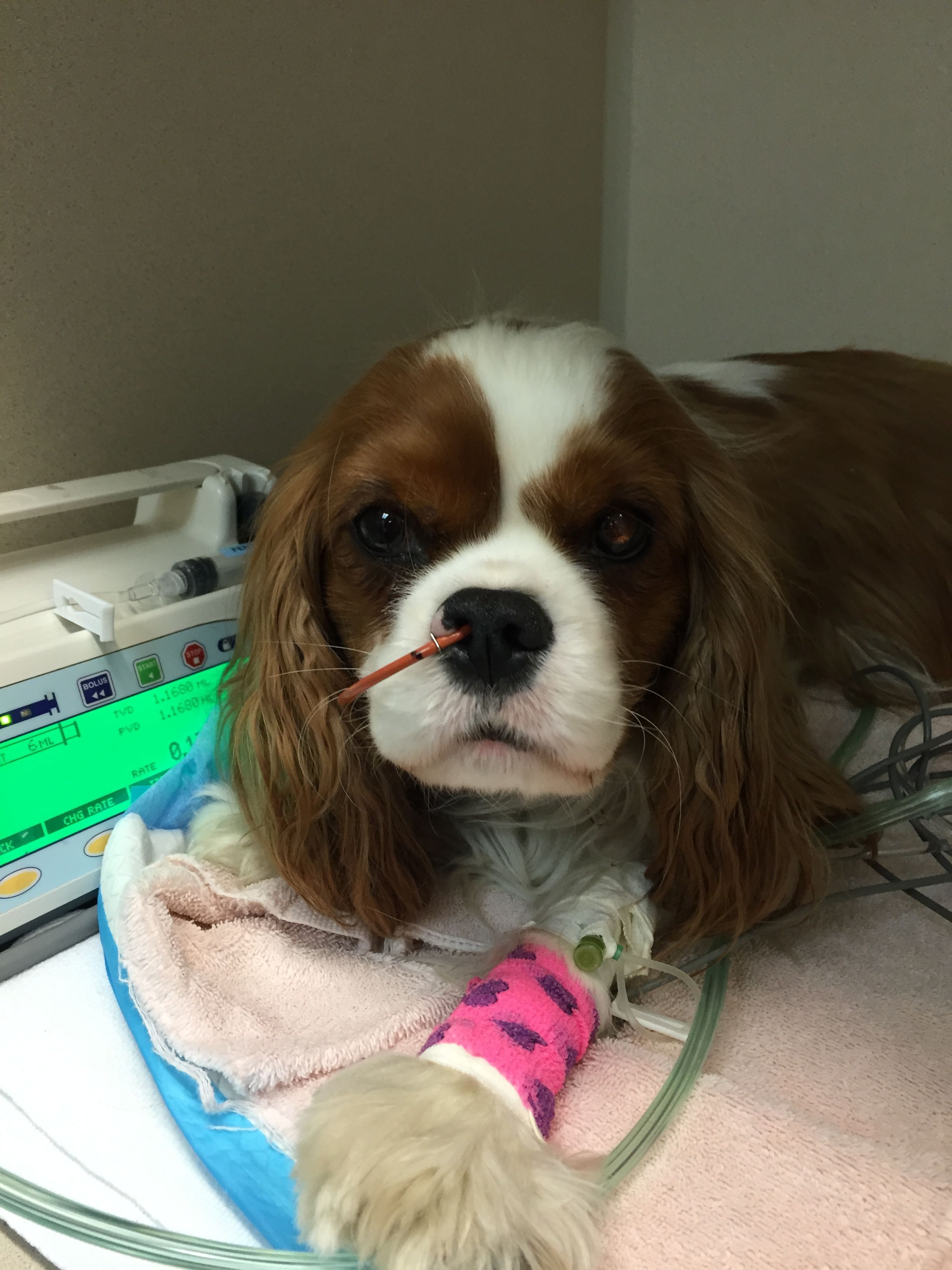

Search Help
Enter a country to search internationally or a city/state or zip to search within the US. If you select a country it will search only within that country. If you select only a state it will only search within that state. If you search for a zip code or city/state combo it will search within a proximityWhat is a Board-Certified Veterinary Cardiologist?
A Veterinary Cardiologist is a specialist that has advanced training in the heart and circulatory system.
To become a Board-certified Veterinary Cardiologist, a veterinarian usually completes a one year internship followed by extensive specialized training in an approved residency training program (usually 3-5 years). Most Veterinary Cardiologists work with small animals; however, some specialize in large animals, including horses and cattle.
What conditions do Veterinary Cardiologists treat?
Board-certified Veterinary Cardiologists focus on diagnosing and treating diseases of the heart and some lung conditions, which include:
- Congestive heart failure (CHF)
- Heart muscle disease (Dilated cardiomyopathy or hypertrophic cardiomyopathy)
- Age related changes to the valves of the heart (Degenerative mitral valve disease)
- Coughing and other breathing problems
- Congenital (present at birth) heart defects
- Cardiac arrhythmias (problems with the rate and/or rhythm of your animal’s heart)
- Diseases of the pericardium (sac surrounding the heart)
- Cardiac tumors
- High blood pressure (hypertension)
- Pulmonary hypertension (high blood pressure in the lungs)
Veterinary Cardiology Specialists will perform a complete and thorough physical examination on your animal, and based on these initial findings, additional tests will be discussed. They will also review your animal’s past history and current medications. Depending on your animal’s condition, diagnostic testing or treatments may include:
- Echocardiography (sonogram) – non-invasive ultrasound imaging of the heart
- Electrocardiography (ECG) – non-invasive electrical reading of the heart’s rhythm
- Blood pressure evaluation
- Holter monitor – 24 hour ECG performed at home
- Radiography (x-rays) of the chest and lungs
- Surgical repair of congenital heart defects
- Cardiac catheterization procedures
- Balloon valvuloplasty to dilate narrowed valves
- Pacemaker implantation for animals with too slow of a heart rate
- OFA Heart Registry Certification for breeding programs
How do Veterinary Cardiologists work with your primary care vet?
Board-certified Veterinary Cardiologists are an integral part of your animal’s health care team from the time a potential cardiac abnormality is noted. Early diagnosis and appropriate therapy of cardiac conditions helps your animal live a longer and healthier life. They work closely with your primary care veterinarian to ensure your animal’s optimal health. While some cardiac conditions require hospitalization, most conditions can be managed on an outpatient basis by a Board-certified veterinary cardiologist along with your primary care veterinarian.
Many Veterinary Cardiology Specialists practice in veterinary teaching hospitals or large referral clinics and are contributing to clinical research programs that aim to improve the cardiac health of animals. Veterinary Cardiology research is essential to identify new diagnostic tests and treatments for cardiac conditions in animals and even humans.
Veterinary education is also important to the Veterinary Cardiologist. From training veterinary students to providing continuing education courses to veterinarians and to training future board certified cardiologists, cardiology specialists are often involved in improving veterinary knowledge and understanding of the cardiac and circulatory conditions.
...
Find a Board-certified veterinary cardiologist using our search tool!
Edited by:
Rebecca Saunders, DVM, DACVIM (Cardiology)
April, 2020
Henry's Heart Surgery
Henry, a Cavalier King Charles Spaniel, was a gift from Santa one Christmas. The day he made his debut with a big, red bow around his neck, he was immediately a central figure in the family. And who could resist the cuteness of a Cavalier puppy
on Christmas?
Henry’s adorable face and lively presence endeared him to his family. He was always up for a brisk walk or a cozy snuggle with the two daughters, Ella and Avery, who loved him dearly.

When Henry was only about 20 months old, the family noticed that the young puppy wasn't as energetic during play or on his daily walks. In fact, he seemed to be lagging behind and everyone began to worry.
With concern for his health, the family took Henry to their primary care veterinarian, where they noticed his heart rate was 35 beats per minute -- a fraction of what it should have been. A healthy heart at his age should have been beating around 120
beats per minute.
The family was referred to CVCA Cardiac Care for Pets, where Henry was diagnosed with third-degree or complete atrioventricular (AV) block. The team of
Board-certified veterinary cardiologists, Sarah Holdt, VMD, DACVIM
(Cardiology), and Neal Peckens, DVM, DACVIM (Cardiology), recommended immediate surgical intervention to implant a permanent transvenous pacemaker in his heart.
Although Henry’s family was shocked by the news, they knew he would be in good hands with the capable vet specialists at CVCA.
"We were so surprised because he was still a young guy to have this serious of a heart problem,” said Henry’s mom, Jennifer. “We understood the risks, but obviously, he needed the procedure."
AV block is a life-threatening condition where the top chambers of the heart are not communicating with the bottom chambers of the heart, resulting in an abnormally low heart rate and diminished blood flow to all other organs in the body. A pacemaker solves this problem and addresses symptoms like lethargy, weakness and collapse/fainting.
“AV block is a highly treatable condition,” said Dr. Holdt, associate veterinary cardiologist with CVCA. “It’s really gratifying to see a night-and-day difference after a relatively short recovery time for these animals.”
On the day of surgery, the family was hopeful. Henry was ready and the veterinary specialist team was assembled. However, the surgery did not go as planned.

Henry experienced a complication: his heart stopped beating for a long, scary eight minutes and the CVCA veterinarians and technician teams had to act quickly. They immediately began performing CPR and after defibrillation, they were able to bring him
back.
Thankfully, the CVCA veterinary cardiologists who treated Henry that day were able to call upon their extra training, credentials, and extensive experience to ensure that the family would get their bundle of joy back home soon.
“The team worked together efficiently,” said Dr. Holdt. “The great anesthesia technician, myself and Dr. Peckens worked together to quickly get the pacemaker into place and ensure Henry was recovering and feeling great.”
And Henry did feel great. His energy returned in full, and the family say he was even friskier than the day they first met him under the Christmas tree.
“They saved his life,” said Jennifer. “We feel fortunate he was in such good hands that day and we had a very happy ending.”
Happy endings like Henry’s are due in large part to the Triad of Care: a best-case scenario in which the animal owner, the primary care veterinarian and the Board-certified veterinary specialists work together to communicate concerns, diagnose, and care for the animal with health concerns.
“Specialty medicine does not exist without primary veterinary care,” said Dr. Peckens. “It needs to be a collaborative process and that’s how it works best. We have a very open dialogue, and we all do our best to take care of patients and give the best outcomes for the patients. That is what we are here for.”
Henry is living his best life now that he has recovered and with the help of his trusty pacemaker. Now six years old, the family reports that he remains super playful and has more energy than ever before. The girls have to hustle to keep up with Henry on walks now and he runs through the house to play ball with his favorite humans.

They shared their gratitude for the capable veterinary specialists at CVCA.
“I just want to give a huge thank you to CVCA,” said Avery. “I can't imagine my life without Henry; he brings so much joy to our house and everyone around us.”
“We want to thank Dr. Peckens and Dr. Holdt from the bottom of our hearts for working so heroically to save Henry’s life,” said Jennifer.
